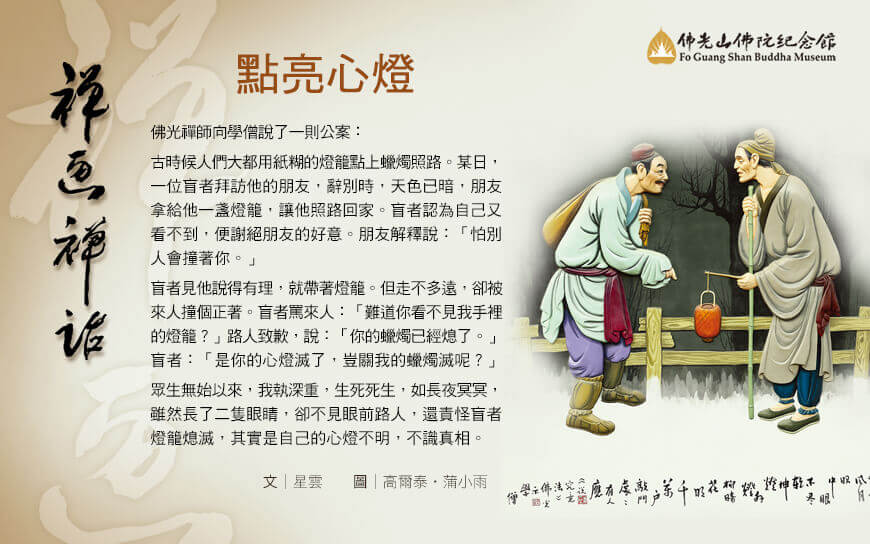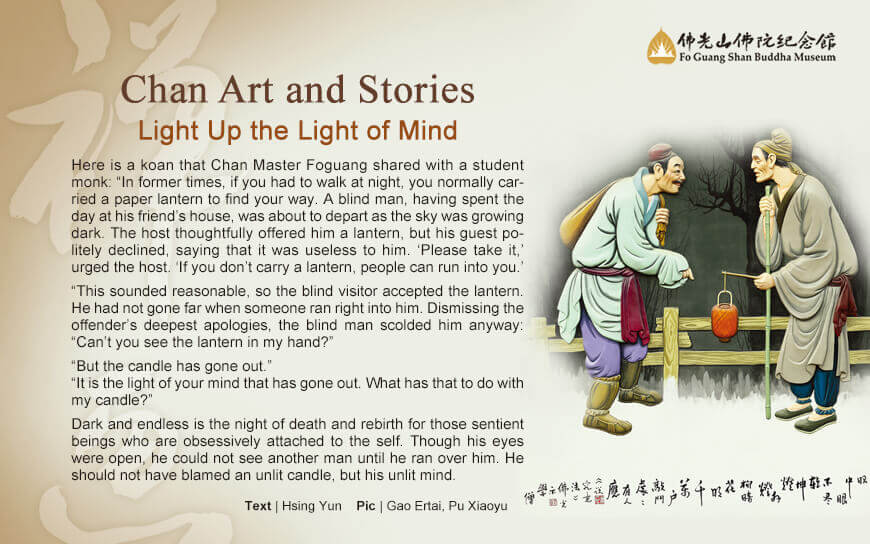語音導覽 - 禪畫禪話Audio Guide - Chan Art and Stories

佛光禪師向學僧說了一則公案:
古時候人們大都用紙糊的燈籠點上蠟燭照路。某日,一位盲者拜訪他的朋友,辭別時,天色已暗,朋友拿給他一盞燈籠,讓他照路回家。盲者認為自己又看不到,便謝絕朋友的好意。朋友解釋說:「怕別人會撞著你。」
盲者見他說得有理,就帶著燈籠。但走不多遠,卻被來人撞個正著。盲者罵來人:「難道你看不見我手裡的燈籠?」路人致歉,說:「你的蠟燭已經熄了。」盲者:「是你的心燈滅了,豈關我的蠟燭滅呢?」
眾生無始以來,我執深重,生死死生,如長夜冥冥,雖然長了二隻眼睛,卻不見眼前路人,還責怪盲者燈籠熄滅,其實是自己的心燈不明,不識真相。

Here is a koan that Chan Master Foguang shared with a student monk: “In former times, if you had to walk at night, you normally carried a paper lantern to find your way. A blind man, having spent the day at his friend’s house, was about to depart as the sky was growing dark. The host thoughtfully offered him a lantern, but his guest politely declined, saying that it was useless to him. ‘Please take it,’ urged the host. ‘If you don’t carry a lantern, people can run into you.’
“This sounded reasonable, so the blind visitor accepted the lantern. He had not gone far when someone ran right into him. Dismissing the offender’s deepest apologies, the blind man scolded him anyway: “Can’t you see the lantern in my hand?”
“But the candle has gone out.”
“It is the light of your mind that has gone out. What has that to do with my candle?”
Dark and endless is the night of death and rebirth for those sentient beings who are obsessively attached to the self. Though his eyes were open, he could not see another man until he ran over him. He should not have blamed an unlit candle, but his unlit mind.
 上一則
上一則